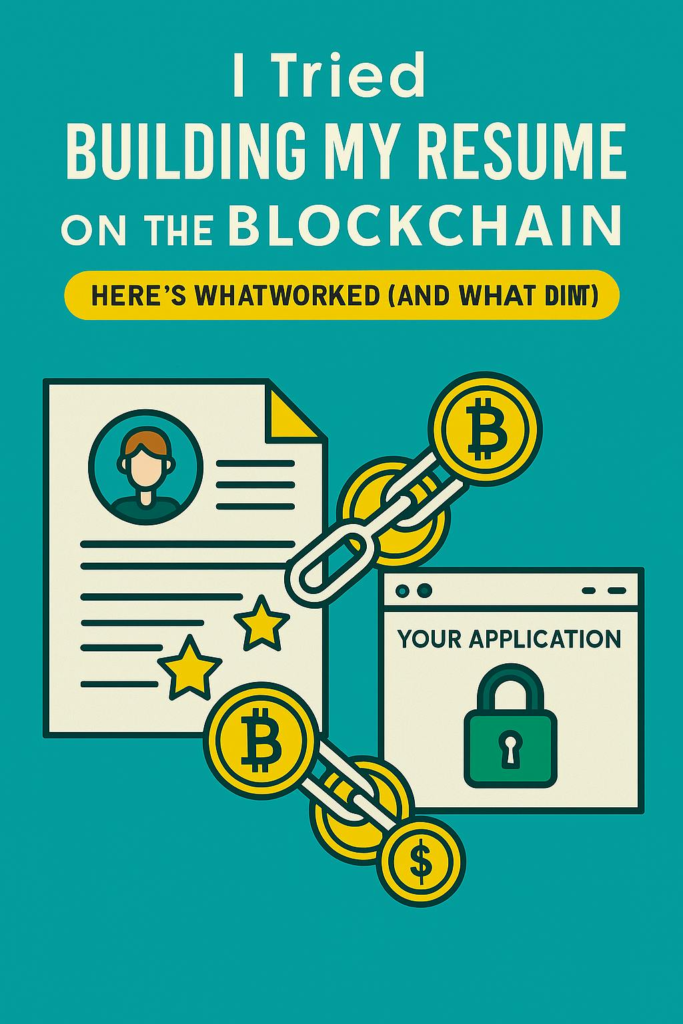One thing I’ve learned as a developer is that skill doesn’t always show up on paper.
I once worked on a small open-source bug that nobody else wanted to touch. It wasn’t glamorous, but it mattered. That fix ended up helping hundreds of users, yet it never made it onto my résumé. That’s the problem. Traditional résumés miss the real story — the invisible work, the learning, the persistence.
So I started recording my work differently. Not in bullet points, but as contributions tied to real tasks, visible online.
For a long time, I believed the standard way to apply for jobs was the only way: have a clean résumé, tailor your cover letter, apply through portals, wait weeks. That system worked for some people — maybe for those with shiny degrees or referrals. But I was tired of being another tab in someone’s inbox. I needed something different — something that let my actual work speak.
I discovered the concept of Skill Wallets through a random article. The idea was simple but powerful: every meaningful contribution — a commit, a course completion, a bug fix — could be issued as a token and stored in a digital wallet. It’s like a living résumé, but backed by proof, not claims.
I immediately loved it. I’m not a blockchain expert, but I’ve dabbled in Solidity and some DAOs, so this felt natural to explore.
Setting it up took time. I had to gather my work: GitHub contributions, hackathons, mentoring sessions. Then I tried platforms like TalentLayer and Showwcase, eventually minting some achievements on Polygon.
I wasn’t looking for perfection. I just wanted it to feel real. And it did. I could click a project and see a timestamp, a hash, a link to the code. No guessing, no fluff.
When I shared the wallet in a job application, I got a response — not a job offer, but a genuine message. A CTO said, “I’ve never seen a résumé like that. It made me curious.”
That alone felt like a win. Someone saw me.
But it wasn’t all smooth. Most companies still rely on traditional systems. HR tools don’t know what to do with token links. And explaining what a Skill Wallet is takes effort. Some folks think it’s overkill. Others think it’s too “Web3.”
Still, I kept going. I started tracking every project I contributed to, even the ones that didn’t feel major. I tokenized them. It helped me stay accountable. Over time, I built a trail — something I could look back on, something that didn’t disappear when a contract ended.
The biggest benefit wasn’t external. It was internal.
I started seeing my work differently. Not as “tasks” for a client, but as milestones in my journey. That mental shift was huge. I began to appreciate even the small wins: the PR that got merged after five revisions, the time I stayed up fixing a bug that wasn’t mine.
Those moments now lived somewhere permanent.
So should everyone drop their résumés and build a Skill Wallet? Maybe not. But I think more people should try it — especially freelancers, indie hackers, and devs working in remote-first ecosystems.
The world is moving fast. Proof of work shouldn’t be buried in folders. It should be visible.
I don’t think tokenizing skill will solve hiring. But I do think it’s a better mirror.
It reflects what you’ve done, not what you say you’ve done. It’s public, immutable, yours.
And ho
nestly? That’s enough for me.

